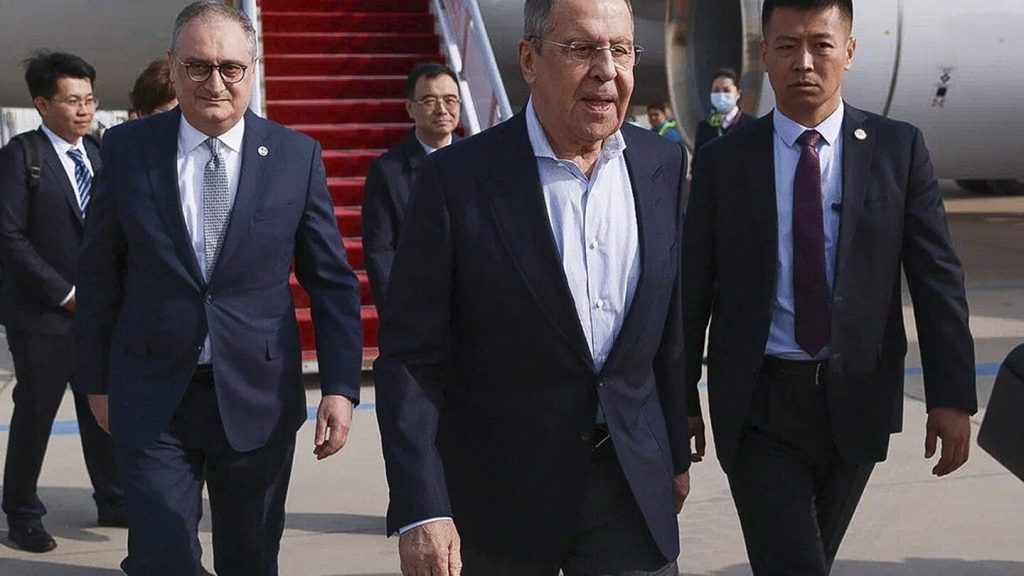During the ongoing conflict between Russia and Ukraine, Russian Foreign Minister Sergey Lavrov visited Beijing to strengthen ties with China, a key diplomatic partner. The authoritarian states have been increasingly at odds with democracies and NATO, seeking to expand their influence in regions like Africa, the Middle East, and South America. China has supported Russia’s claim that the war was sparked by Western provocations, although no concrete evidence has been provided. The ministers discussed the situation in Ukraine, bilateral cooperation, and international interactions.
While China has backed Russia in the Ukraine conflict, it maintains a stance of promoting peace talks and political solutions. Chinese Foreign Ministry spokeswoman Mao Ning stated that China has an objective and fair position on the Ukraine issue, denying any involvement in the crisis. Despite economic ties with Russia, China claims it is not providing military assistance to Moscow. The two countries have signed agreements pledging unwavering support, with China refraining from labeling Russia’s actions as an invasion.
In response to the conflict, U.S. President Biden has urged China to use its influence over North Korea and address its defense relationship with Russia. U.S. lawmakers have proposed legislation that would ban TikTok, a popular social media platform owned by a Chinese company, if it does not sell its stakes within six months. Lawmakers are concerned about potential data breaches and China’s control over user data. Additionally, U.S. Treasury Secretary Janet Yellen recently had discussions with Chinese officials about national security issues and the impact of Chinese industrial policies on American jobs.
The visit of Lavrov to Beijing coincides with efforts to address the tension between the U.S. and China, with the U.S. pushing for changes in China’s industrial policies and concerns about Chinese companies supporting Russia in the Ukraine conflict. The strategic partnership between China and Russia, as well as their shared opposition to Western influence, has led to collaborative military drills and aligned foreign policies. Despite their differences with democracies and NATO, both countries are seeking to expand their global influence and strengthen their positions in key regions.
While the discussions between Lavrov and Wang Yi were not fully disclosed, it is evident that Russia and China are working closely to counter Western influence and promote their own agendas. The visit highlights the growing partnership between the two authoritarian states and their efforts to challenge the dominance of democracies in global affairs. As tensions escalate between the U.S., China, and Russia, the outcomes of these diplomatic meetings will have far-reaching implications for international relations and the balance of power in the world.


